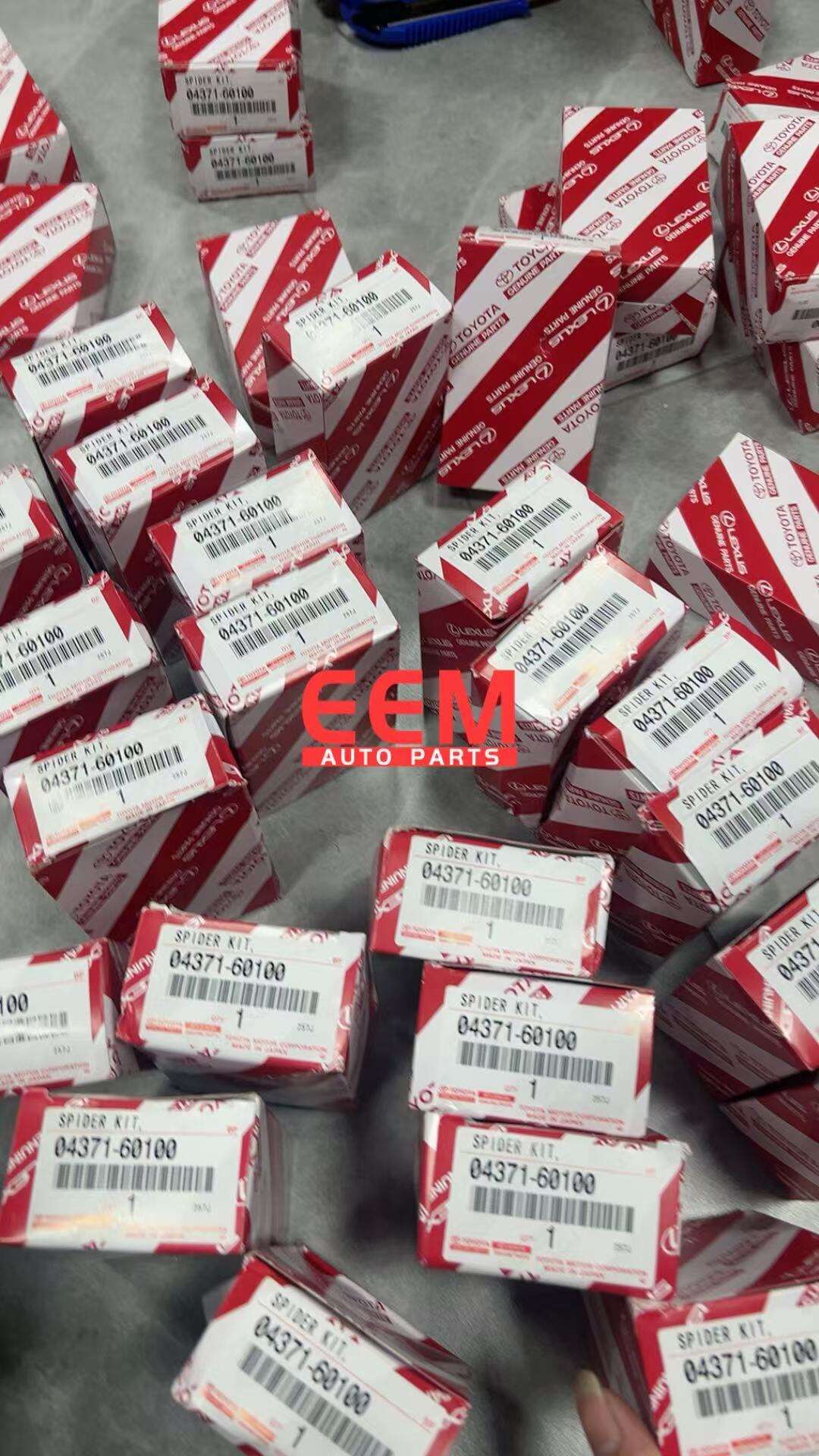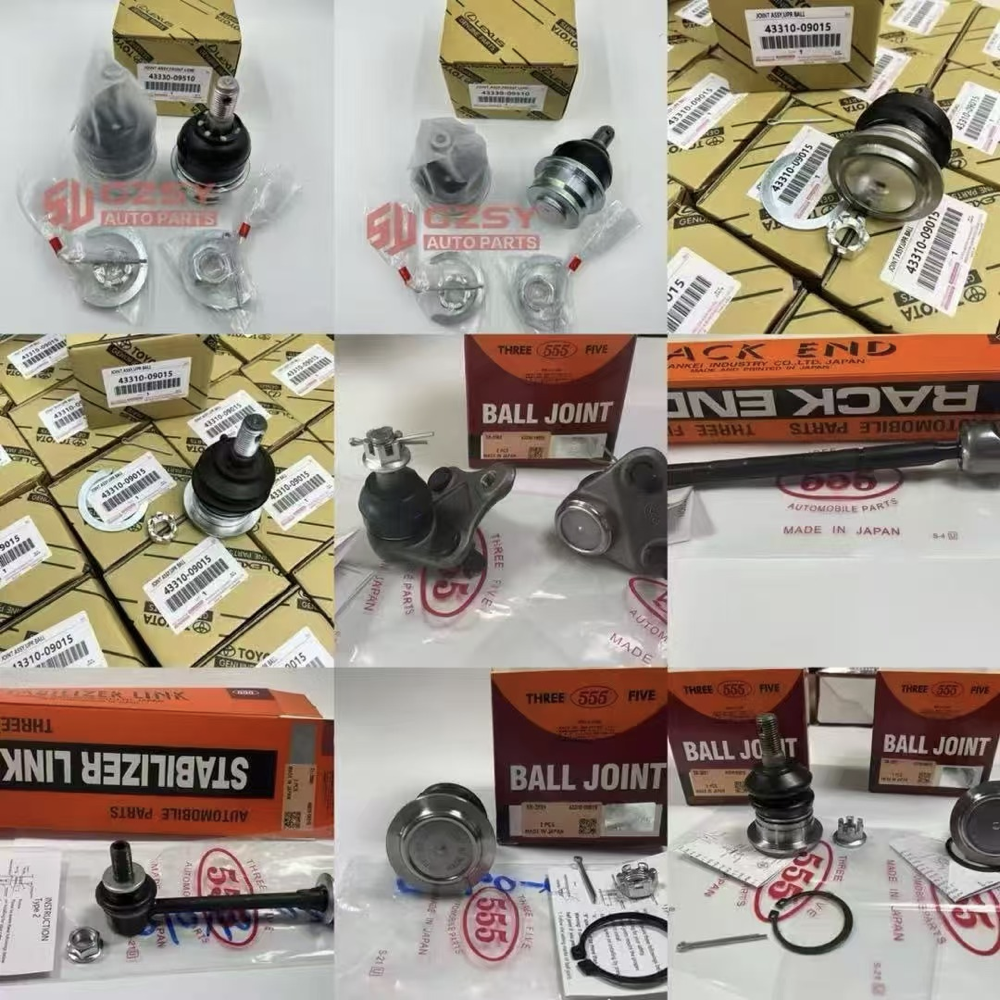Understanding the Chinese Auto Parts Manufacturing Landscape
The automotive industry has witnessed a significant shift in recent decades, with China emerging as a global manufacturing hub for auto parts. Among the many automotive brands finding success in Chinese manufacturing, Nissan auto parts wholesale in China has become a cornerstone of the global supply chain. This comprehensive guide explores the intricate world of Nissan parts manufacturing, quality control processes, and the advantages of sourcing from Chinese manufacturers.
The Evolution of Chinese Auto Parts Manufacturing
Technological Advancement and Manufacturing Excellence
Chinese manufacturing facilities have undergone remarkable transformation over the past two decades. State-of-the-art production lines, advanced robotics, and precise quality control systems now characterize the manufacturing landscape. When it comes to Nissan auto parts wholesale in China, manufacturers have invested heavily in technology that matches international standards, ensuring consistency and reliability in every component produced.
Modern Chinese factories utilize computer-aided design (CAD) and computer-aided manufacturing (CAM) systems, allowing for precise specifications and minimal deviation in production. This technological integration has significantly improved the quality and reliability of auto parts, making Chinese manufacturers highly competitive in the global market.
Regulatory Framework and Compliance
The Chinese government has implemented strict regulations governing auto parts manufacturing, particularly for international brands like Nissan. These regulations ensure that Nissan auto parts wholesale in China meets both domestic and international quality standards. Manufacturers must obtain various certifications, including ISO 9001, TS 16949, and specific Nissan quality certifications, demonstrating their commitment to excellence.
Regular audits and inspections by both Chinese authorities and Nissan's quality control teams ensure ongoing compliance with these standards. This robust regulatory framework has helped establish China as a trusted source for authentic Nissan components.

Quality Control Measures in Chinese Manufacturing
Advanced Testing Procedures
Quality control begins with raw material testing and continues throughout the production process. Chinese manufacturers engaged in Nissan auto parts wholesale in China employ sophisticated testing equipment and procedures. These include metallurgical analysis, dimensional inspection, durability testing, and performance simulation under various conditions.
Each batch of components undergoes rigorous testing protocols, including stress tests, environmental exposure assessments, and functionality verification. This comprehensive testing ensures that parts meet Nissan's exact specifications and performance requirements.
Documentation and Traceability
Modern Chinese manufacturing facilities maintain detailed documentation of every production batch. This includes material certificates, production parameters, test results, and quality inspection reports. For Nissan auto parts wholesale in China, this documentation system ensures complete traceability from raw material to finished product.
Digital tracking systems and QR codes allow for instant access to a component's manufacturing history, helping identify and resolve any quality issues that may arise. This level of transparency has become a standard feature of Chinese auto parts manufacturing.
Supply Chain Management and Logistics
Inventory Control Systems
Efficient inventory management is crucial for Nissan auto parts wholesale in China. Modern warehousing facilities utilize automated storage and retrieval systems (AS/RS) to manage large volumes of components. Real-time inventory tracking ensures optimal stock levels and quick response to market demands.
Advanced warehouse management systems (WMS) help maintain proper storage conditions for different types of auto parts, preventing degradation and ensuring components reach customers in perfect condition. This sophisticated approach to inventory control has significantly reduced lead times and improved supply chain efficiency.
Distribution Network Optimization
Chinese manufacturers have developed extensive distribution networks to support Nissan auto parts wholesale in China. Strategic warehouse locations, efficient transportation partnerships, and streamlined customs procedures ensure smooth international delivery. The integration of blockchain technology in supply chain management has further enhanced transparency and reduced counterfeit risks.
Modern logistics solutions include real-time shipment tracking, temperature-controlled containers for sensitive components, and optimized routing algorithms that minimize delivery times while ensuring cargo safety.
Future Trends and Innovations
Smart Manufacturing Integration
The future of Nissan auto parts wholesale in China is increasingly focused on smart manufacturing technologies. Industry 4.0 principles are being implemented across production facilities, incorporating Internet of Things (IoT) sensors, artificial intelligence, and machine learning algorithms to optimize production processes.
These technological advancements enable predictive maintenance, reduce production errors, and increase overall manufacturing efficiency. Chinese manufacturers are investing heavily in these innovations to maintain their competitive edge in the global auto parts market.
Sustainability Initiatives
Environmental consciousness is becoming increasingly important in auto parts manufacturing. Chinese facilities involved in Nissan auto parts wholesale in China are adopting green manufacturing practices, including energy-efficient production methods, waste reduction programs, and recyclable packaging solutions.
Many manufacturers are also transitioning to renewable energy sources and implementing water conservation measures. These sustainability initiatives not only reduce environmental impact but also meet the growing demand for eco-friendly manufacturing practices.
Frequently Asked Questions
How can I verify the authenticity of Nissan parts from Chinese manufacturers?
Authentic Nissan parts from Chinese manufacturers come with specific identification marks, QR codes, and documentation. Always purchase from authorized wholesale distributors who can provide proper certification and traceability documents.
What quality certifications should I look for when sourcing Nissan parts from China?
Look for manufacturers with ISO 9001, TS 16949 certifications, and specific Nissan manufacturing authorizations. These certifications ensure adherence to international quality standards and Nissan's specific requirements.
What are the typical lead times for Nissan auto parts wholesale orders from China?
Lead times vary depending on the component type and order volume, typically ranging from 15-45 days. Many manufacturers maintain stock of common parts for faster fulfillment, while custom or specialized components may require longer production times.
How do Chinese manufacturers ensure consistent quality across large production runs?
Chinese manufacturers employ automated quality control systems, regular testing protocols, and sophisticated monitoring equipment. They also maintain strict documentation and traceability systems to ensure consistency across all production batches.
Table of Contents
- Understanding the Chinese Auto Parts Manufacturing Landscape
- The Evolution of Chinese Auto Parts Manufacturing
- Quality Control Measures in Chinese Manufacturing
- Supply Chain Management and Logistics
- Future Trends and Innovations
-
Frequently Asked Questions
- How can I verify the authenticity of Nissan parts from Chinese manufacturers?
- What quality certifications should I look for when sourcing Nissan parts from China?
- What are the typical lead times for Nissan auto parts wholesale orders from China?
- How do Chinese manufacturers ensure consistent quality across large production runs?

